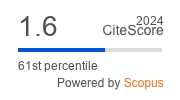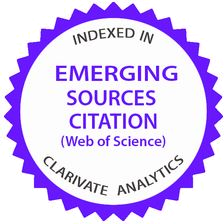Malaysian Journal of Mathematical Sciences, June 2025, Vol. 19, No. 2
Estimation of Generalized Extreme Value Parameters for Predicting Extreme Air Pollution Events in Klang Valley: A Comparative Study of Optimization Algorithms
Alrasheedi, N. D. N., Masseran, N., and Mohd Tajuddin, R. R.
Corresponding Email: nawwal2c@gmail.com
Received date: 31 October 2024
Accepted date: 2 March 2025
Abstract:
The Generalized Extreme Value (GEV) distribution plays a critical role in modelling rare and extreme events, offering robust tools for analyzing phenomena like severe pollution episodes. In Malaysia's Klang Valley, accurate prediction of extreme air pollution events is essential for effective air quality management. This study aims to enhance GEV parameter estimation through advanced optimization and statistical methods, improving the predictive accuracy of extreme pollution events. A comparative analysis was conducted using Differential Evolution (DE), Genetic Algorithms (GA), Maximum Likelihood Estimation (MLE), and Tail-Adaptive Bayesian Estimation (T-BE). Simulated datasets with sample sizes from $10$ to $1000$ have been employed for this analysis. The performance was assessed using the Mean Squared Error (MSE), Root Mean Squared Error (RMSE), Mean Absolute Error (MAE), Akaike Information Criterion (AIC), and Kolmogorov-Smirnov (KS) tests. DE and T-BE emerged as the most effective methods, demonstrating improved accuracy and robustness. At a sample size of $1000$, DE and T-BE achieved an MSE of $0.027$, RMSE of $0.164$, MAE of $0.143$, and an R-squared of $0.97$, outperforming MLE and GA. These methods also exhibited the lowest AIC values $(1.370)$ and highest KS scores (up to $0.56$), confirming their suitability for modelling extreme events. The results underscore the potential of DE and T-BE to refine GEV parameter estimation, enabling better predictions of extreme pollution events. These advancements have critical implications for air quality management, providing a foundation for proactive policies and risk mitigation strategies. Future studies could explore integrating these methods into real-time air quality monitoring systems for enhanced practical applications.
Keywords: generalized extreme value; extreme air pollution events; parameter estimation; metaheuristics optimization algorithms; maximum likelihood estimation; tail-adaptive Bayesian estimation









